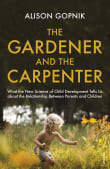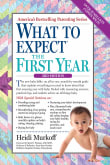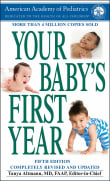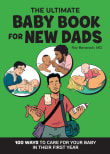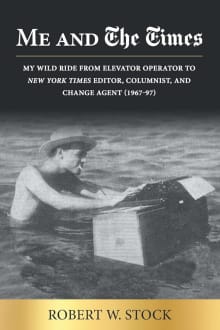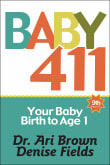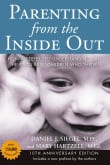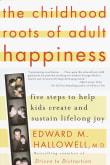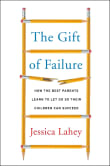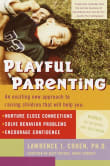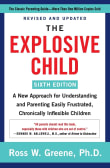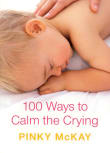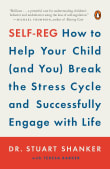The Whole-Brain Child
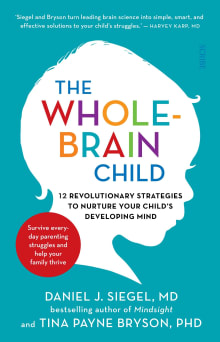
Book description
In this pioneering, practical book for parents, neuroscientist Daniel J. Siegel and parenting expert Tina Payne Bryson explain the new science of how a child's brain is wired and how it matures. Different parts of a child's brain develop at different speeds and understanding these differences can help you turn…
Why read it?
10 authors picked The Whole-Brain Child as one of their favorite books. Why do they recommend it?

I love this book because it explains how a child’s brain works and what they need to access self-control. It gave me insight into why I saw challenging behaviors even when the child “knew better.”
I loved that when I finished reading it, I felt like I had actionable strategies for supporting my child’s mental well-being while navigating tantrums and meltdowns.
From Alyssa's list on raising emotionally intelligent humans.

Many of us tend to focus on the child— the child has tantrums, therefore the child has the problem. It‘s important for me to include this book on the list because adults play an unparalleled role in modeling emotional regulation for kids. We need to remind ourselves that how we respond can make the difference between resolving the situation OR making it worse. This book is an eye-opener and can help grown-ups relate to kids in better ways. It’s about connection before correction, because a dysregulated child (or adult, for that matter), cannot think straight and will not be able…
From Kim's list on kids with big feelings.

This book changed my entire mindset when it came to bringing up my own child. Having been someone who was brought up in a very traditional (aka militarily strict!) manner, I didn’t really know any other way to be in my own life as a dad, but I always felt deep down that having a ‘just do as I say’ approach to parenting is so one dimensional and not reflective of true bonding.
This book is fantastic at giving the insights into how a child thinks, the signals to watch out for, and also making you see things from a…
From Han-son's list on modern day fatherhood.
If you love The Whole-Brain Child...

This book provides 12 strategies to help your child be happier and promote healthy development. I particularly loved the way it enables both parents and children to learn more about their emotions together through analogies and graphics. As well as provide many strategies to limit disputes and overcome them. It has allowed me to address my child’s reactionary behaviour in times of stress and get her to pause then take an empathetic view of the situation. Learning lessons in thinking things through and developing self-control will pay dividends in the future.
From Nigel's list on parenting from a dog behaviourist.

Potty learning, like all learning and skill-building, requires brain, body, and emotions all working together. Potty training is also one giant leap into a child’s self-management of their own behavior. Potty training begins with “co-regulation” and, as parents and caregivers pass more and more responsibility to the child, the child takes over completely, often after a few mistakes, accidents, and setbacks.
The Whole-Brain Child helps parents and caregivers understand how to speak to the “upstairs brain” and calm the “downstairs brain” so children can organize their thoughts and behavior in constructive ways. Potty training can get emotional for kids and…
From Karen's list on to survive potty training with humor and understanding.

The past two decades have seen an explosion in neuroscience’s understanding of children’s brains and what they need for best development. Dr. Dan Siegel is a master translator of this research; he turns complicated science into easy-to-understand language and cartoons. This book offers simple and super-effective brain-friendly discipline strategies parents can use to turn conflict and chaos into connection and calm.
From Beth's list on for tired and frazzled parents.
If you love Daniel J. Siegel...

You must read Dan Siegel, one of the founders of the Interpersonal Neurobiology field who writes lots of best sellers, many of them for parents. This book informs the reader on how the brain develops and functions. The book offers multiple actions in reaction to a child’s needs or actions that are brain-growth oriented and foster connection and healthy attachment.
From Darcia's list on neuroscientific parenting.

From toddlers to teens our children mystify us, often making being their parents tremendously challenging. This easily understood book gives rhyme and reason to why our kids do what they do from the perspective of their brain development. It teaches us to respond with their brains in mind and grow them at the same time. It is one big “Ah Ha” experience.
From Betsy's list on being the parents you want to be.

This book distills volumes of science about how the human brain develops into practical tools that parents can use on a daily basis. The Whole-Brain Child also includes information (often in the form of drawings) that can be shared with children, so they too can understand why they sometimes feel and do the things they do. How we raise and relate to our children matters; this book will help you understand just why, and give you concrete tools for enhancing your child’s emotional development.
From Cheryl's list on trauma in early childhood.
If you love The Whole-Brain Child...

This is a book to check out if you have some time to read and you’re interested in child psychology. I like stories, and this one has plenty of them. The stories are good because many of them describe situations you’ll encounter as a parent. Seeing how issues should be handled can help when you find yourself in the same boat. The goal is to have a happy, calm child. This book looks at how the left and right parts of the brain work to achieve that goal.
From Sherry's list on for new parents in that crazy first year.
Want books like The Whole-Brain Child?
Our community of 12,000+ authors has personally recommended 100 books like The Whole-Brain Child.



